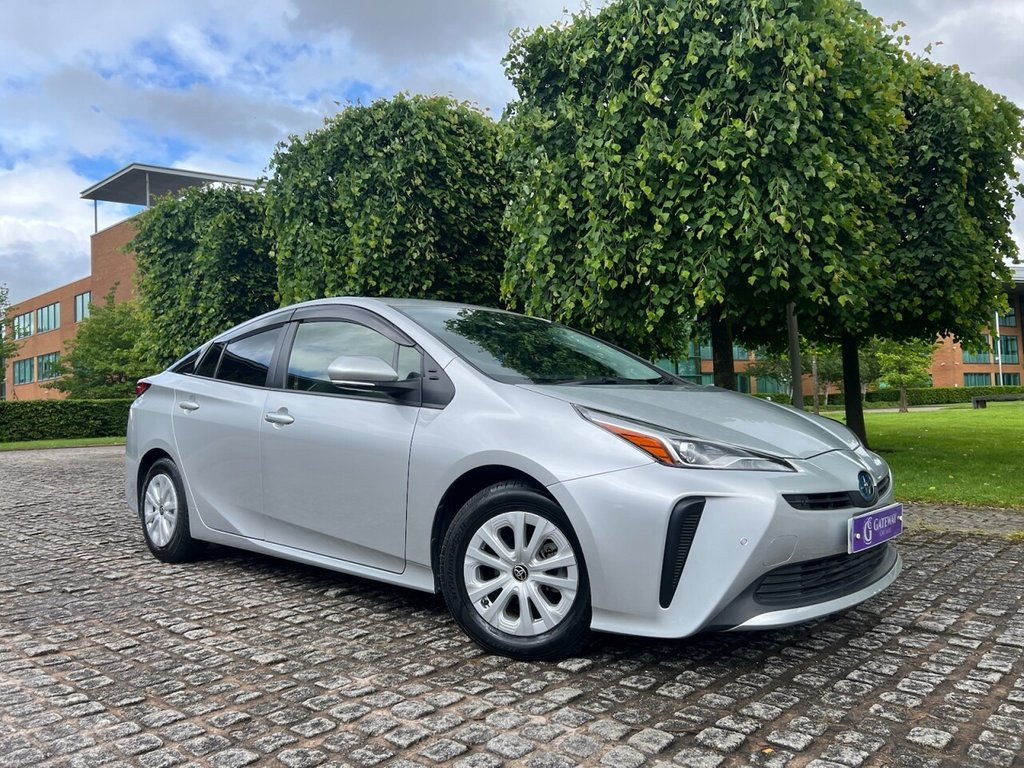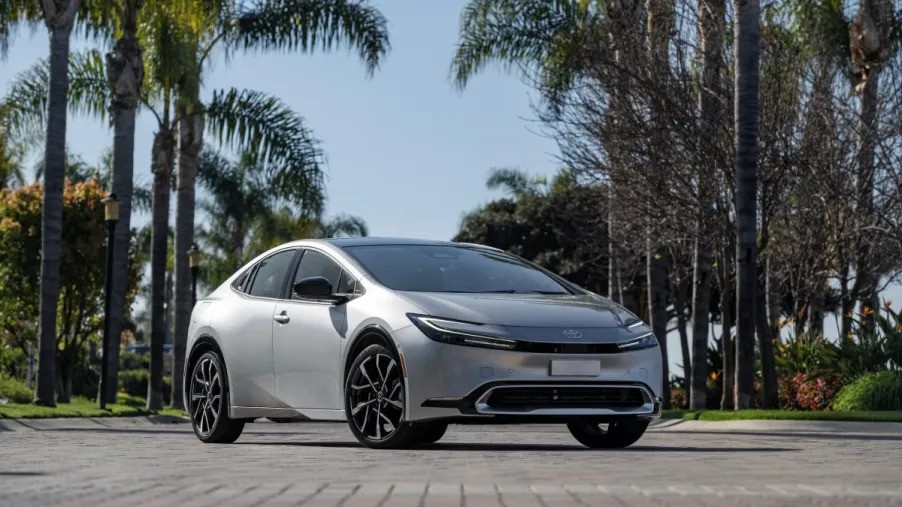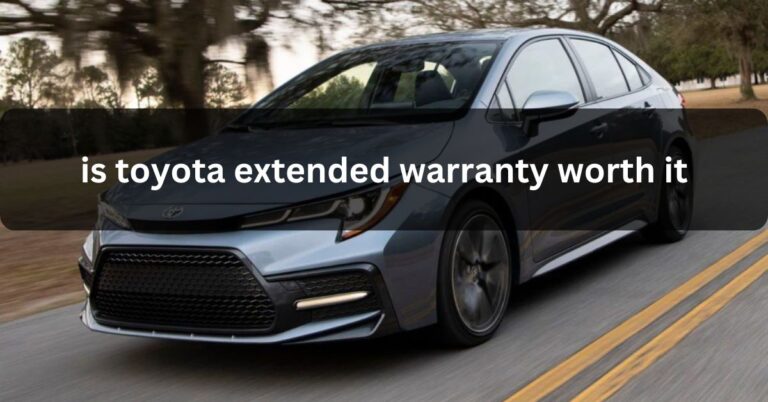Are Toyota Prius Reliable – Get The Facts Now!
From my experience, the Toyota Prius has been very reliable. I’ve had mine for years with few issues and minimal repairs. It’s been a dependable car with low maintenance costs.
Yes, Toyota Priuses are known for being reliable. They often last for many years and have a good track record for needing fewer repairs.
Wondering if a Toyota Prius is reliable? Find out why it’s a top choice for lasting performance and easy upkeep!
What kind of warranty does Toyota offer on the Prius hybrid battery?
Toyota provides an 8-year or 100,000-mile warranty on the hybrid battery for the Prius, which covers defects in materials and workmanship. This warranty offers peace of mind for Prius owners, ensuring that the battery is protected against major issues during this period.
In states with more stringent emissions regulations, the warranty is extended to 10 years or 150,000 miles, reflecting Toyota’s commitment to long-term reliability and their confidence in the durability of their hybrid technology. Additionally, Toyota’s hybrid battery warranty is transferable to subsequent owners, enhancing the vehicle’s resale value.
How does the Toyota Prius’s reliability compare to other hybrid vehicles?
The Toyota Prius is widely regarded as one of the most reliable hybrid vehicles on the market. It consistently ranks high in reliability ratings compared to other hybrids. Several factors contribute to this strong reputation:
Proven Track Record:
The Prius has been on the market since 1997 and has built a solid track record of durability and longevity. Its long history of dependable performance sets it apart from many newer hybrids.
Hybrid System Design:
Toyota’s hybrid technology, including the Prius’s Hybrid Synergy Drive, is well-established and refined over many years, leading to fewer issues and greater reliability compared to some newer or less-tested hybrid systems.

Consumer Reports and J.D. Power Ratings:
The Prius often receives high marks from organizations such as Consumer Reports and J.D. Power for its reliability. These ratings are based on owner feedback and extensive testing.
Low Maintenance Costs:
Compared to many other hybrids, the Prius generally has lower maintenance and repair costs, contributing to its reputation for reliability.
Battery Longevity:
The Prius’s hybrid battery is known for its longevity and performance, with many batteries lasting beyond the warranty period, which is often a concern for hybrid buyers.
What are the typical maintenance costs for a Toyota Prius?
The typical maintenance costs for a Toyota Prius are generally lower than for many conventional vehicles. Routine services, such as oil changes, tire rotations, and brake inspections, are relatively affordable.
Hybrid-specific maintenance, like checking the hybrid battery and cooling system, is usually only needed at longer intervals and often costs less than repairs for other complex hybrid systems. On average, Prius owners can expect to spend around $200 to $300 per year on regular maintenance.
Major repairs, such as battery replacements, are infrequent but can be more costly; however, the Prius’s hybrid battery comes with an 8-year or 100,000-mile warranty, which helps mitigate these potential expenses.
Are there common issues reported with the Toyota Prius?
Hybrid Battery Problems:
Although rare, some owners experience issues with the hybrid battery, such as decreased performance or failure. However, the battery generally lasts well beyond its warranty period, and replacements are infrequent.
Inverter Issues:
Some Prius models have reported problems with the inverter, which is crucial for converting electricity in the hybrid system. This issue can lead to reduced performance and increased repair costs.
Brake System Wear:
The regenerative braking system, which helps recharge the hybrid battery, can cause unusual wear on brake components over time. Regular inspections can help manage and mitigate this wear.
Headlight Assembly Issues:
Certain Prius models have experienced problems with the headlight assemblies, including issues with headlight brightness and alignment.
Software Glitches:
Some owners have reported software-related issues, such as glitches with the infotainment system or the hybrid control system. These issues are typically addressed with software updates.
Does the Toyota Prius require specialized service compared to non-hybrid cars?
The Toyota Prius does require some specialized service compared to conventional non-hybrid vehicles due to its unique hybrid system. Key components such as the hybrid battery, electric motor, and inverter require specific knowledge and tools for maintenance and repair.
While routine tasks like oil changes and tire rotations are similar to those for non-hybrids, servicing the hybrid system often involves specialized training. Technicians need to be familiar with the intricacies of the Prius’s hybrid technology to ensure that the vehicle operates efficiently and safely.
What are some of the most frequent repairs needed for a Toyota Prius?
Hybrid Battery Replacement:
Although the Prius’s hybrid battery is designed to last a long time, it may eventually need replacement, especially in older models or those with high mileage. The cost of a replacement battery can be significant, but it’s usually covered under warranty for the first 8 years or 100,000 miles.
Inverter Replacement:
The inverter, which converts direct current (DC) from the hybrid battery into alternating current (AC) for the electric motor, can occasionally fail. Inverter issues can impact vehicle performance and may require costly repairs or replacement.
Brake System Repairs:
The Prius uses regenerative braking to recharge the hybrid battery, which can lead to unusual wear on the brake pads and rotors. Regular inspections are necessary to address any wear and ensure the braking system remains effective.
Cooling System Repairs:
The hybrid battery and inverter systems generate heat, which necessitates a cooling system to prevent overheating. Problems with the cooling system, such as leaks or failures, can affect the performance of the hybrid components.
Software Updates and Electrical Issues:
Occasionally, the Prius may experience software glitches or electrical issues affecting the infotainment system, hybrid control systems, or dashboard indicators. These issues are typically resolved with software updates or minor repairs.
How does the fuel efficiency of the Prius contribute to its overall reliability?
The Toyota Prius’s fuel efficiency lessens the load on the car’s engine and hybrid system, which contributes significantly to the vehicle’s overall reliability. The hybrid technology of the Prius is engineered to optimize fuel efficiency, frequently surpassing 50 miles per gallon.

In comparison to conventional vehicles, the engine runs less frequently and under less stress thanks to its outstanding fuel economy. Because of this, parts like the engine and transmission see less wear and tear, which increases the vehicle’s long-term dependability and lowers the need for expensive maintenance.
Is the Toyota Prius known for having a high resale value due to its reliability?
Yes, the Toyota Prius is known for maintaining a high resale value, largely due to its reliability and strong reputation for durability. Its dependable performance and low maintenance costs make it a popular choice among used car buyers.
The Prius’s reputation for fuel efficiency and the longevity of its hybrid components contribute to its appeal in the used car market. As a result, owners often find that their Prius holds its value well compared to many other vehicles, making it a smart investment both in terms of initial purchase and long-term resale.
FAQS:
How does the Prius’s hybrid system impact overall vehicle reliability?
The Prius’s hybrid system is designed for efficiency and reliability. However, the complexity of the hybrid system means that specialized care is sometimes needed, though it generally contributes to the vehicle’s overall reliability.
What should I do if I experience issues with my Prius?
If you encounter issues with your Prius, it’s best to visit a certified Toyota service center. They have the expertise and equipment to diagnose and fix hybrid-specific problems effectively.
Are there any Toyota Prius models that are more reliable than others?
Generally, later models of the Toyota Prius benefit from improved technology and refinements. While all models are designed to be reliable, newer versions may offer enhanced durability and fewer issues.
How can I ensure my Toyota Prius remains reliable over time?
To maintain your Prius’s reliability, follow the recommended maintenance schedule, use high-quality parts, address any issues promptly, and keep an eye on hybrid system components. Regular care and timely servicing are key to long-term reliability.
Conclusion:
Toyota Priuses are very reliable. They tend to last a long time and usually need fewer repairs, making them a dependable choice for drivers.
Read:
- How Many Miles Will A Toyota Tacoma Last – Find Out How Long It Lasts!
- How Long Do Toyota Siennas Last – Lets Talk About It!
- How Long Does A Toyota Alternator Last – Let’s Talk About It!

I’m Harry Edward, your Toyota car expert. With 5 years of experience in Toyota car repair, I share practical tips and insights to help you keep your vehicle in top condition.
From routine maintenance to fixing common issues, my goal is to make your Toyota ownership experience smooth and enjoyable.







